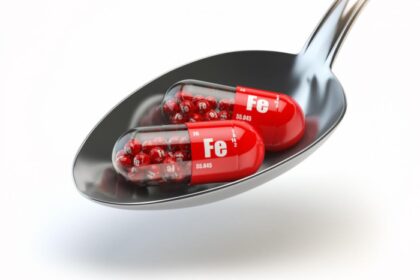Navigating the journey of menopause can be both a challenging and transformative phase in a woman’s life. As the body undergoes significant hormonal shifts, it’s common to experience a range of uncomfortable symptoms that can impact daily life.
From hot flashes and mood swings to disrupted sleep patterns and fluctuating energy levels, these symptoms can leave many women seeking relief. While there is no one-size-fits-all solution to managing menopause, the power of herbal remedies has been recognized for centuries, offering a natural and comforting approach to alleviating discomfort.
In this article, we delve into the world of herbal teas, exploring 10 delicious and soothing options that not only provide respite from the symptoms of menopause but also offer a moment of tranquility in the midst of change. So, grab your favorite mug and join us as we explore the benefits of these handpicked herbal teas that can make your menopause journey a little more manageable.
Menopause is a natural biological process that marks the end of a woman’s reproductive years. It is defined as the point in time when a woman has not had a menstrual period for 12 consecutive months. Menopause typically occurs between the ages of 45 and 55, with the average age being around 51.
During menopause, the ovaries gradually produce fewer hormones, specifically estrogen and progesterone, leading to significant hormonal changes in the body. These hormonal shifts give rise to a range of symptoms that can vary in intensity and duration from woman to woman. Some of the most common symptoms of menopause include:
- Hot Flashes and Night Sweats: These sudden and intense feelings of heat can cause the skin to redden and result in profuse sweating, particularly at night. Hot flashes can be accompanied by rapid heartbeats and feelings of anxiety.
- Irregular Menstrual Cycles: As menopause approaches, menstrual periods can become irregular in terms of timing, duration, and flow. Eventually, periods cease altogether.
- Vaginal Dryness and Discomfort: Declining estrogen levels can lead to thinning and drying of the vaginal walls, causing discomfort, itching, and pain during sexual intercourse.
- Mood Changes: Hormonal fluctuations can contribute to mood swings, irritability, and feelings of depression or anxiety.
- Sleep Disturbances: Menopausal women often experience difficulties falling asleep or staying asleep due to night sweats, mood changes, and hormonal imbalances.
- Weight Gain: Changes in metabolism and hormonal imbalances can lead to weight gain, particularly around the abdomen.
- Fatigue: Menopausal women may experience increased fatigue and decreased energy levels.
- Bone Health Concerns: The decline in estrogen levels can also impact bone health, potentially increasing the risk of osteoporosis and fractures.
- Cognitive Changes: Some women report difficulties with memory and concentration during menopause, often referred to as “brain fog.”
- Changes in Libido: Fluctuating hormones can lead to a decreased interest in sexual activity for some women.
It’s important to note that not all women will experience all of these symptoms, and the severity of symptoms can vary widely. Additionally, while menopause is a natural process, the symptoms can be quite uncomfortable and impact a woman’s quality of life.
Many women seek various forms of relief, including lifestyle changes, hormonal therapies, and natural remedies like herbal teas, to manage these symptoms and make the transition through menopause smoother.
Science Behind Menopause-Relieving Herbal Teas
For women navigating the often turbulent waters of menopause, finding solace in a soothing cup of tea might just be more than a comforting ritual. The centuries-old tradition of utilizing herbal remedies is now gaining renewed attention as potential aids in alleviating the diverse array of menopausal symptoms.
While the efficacy of herbal teas remains a subject of ongoing research, recent studies offer a tantalizing glimpse into their potential benefits. Join us as we dive deeper into the science behind these herbs, each a unique note in the symphony of herbal therapies.
- Black Cohosh: Historically treasured by Native Americans, black cohosh has garnered significant attention for its potential to ease the tempestuous waves of menopausal symptoms. Researchers have revealed that this herb may help abate hot flashes and insomnia through its interaction with hormonal pathways. Click Here To Check out Starwest Botanicals(SWB) Organic Black Cohosh Loose Leaf Tea
- Red Clover: Containing isoflavones akin to estrogen, red clover boasts potential for mitigating menopausal discomfort. It is advised not to use Red Clover if you are breastfeeding. Click Here To Check Out SWB Organic Red Clover Loose Leaf Tea
- Panax Ginseng: Known as Asian ginseng, this herb harmonizes the symphony with its anti-inflammatory properties and estrogen-like effects. Panax ginseng may aid in managing hot flashes. Check with your doctor for information with potential interactions with medications. Check Out This Red Ginseng With Royal Jelly From SWB
- Valerian: Long used to address insomnia and anxiety, valerian might hold a soothing melody for those enduring sleep troubles or hot flashes. It is advised not to use Valerian if you are breastfeeding. Click Here To Check Out SWB Organic Valerian Loose Leaf Tea
- Sage: A recent study on postmenopausal women provided intriguing insight into the benefits of sage. Improvements in concentration, as well as reductions in hot flashes, night sweats, panic, and fatigue, were observed. Click Here To Check Out SWB Organic Sage Loose Leaf Tea
- St. John’s Wort: Traditionally employed for nervous disorders and inflammation, St. John’s wort may find a place in the menopausal ensemble. Be sure to check with your Doctor before starting St. John’s wort, as it interacts with numerous medications. Click Here To Check Out SWB Organic St. Johns Wart Loose Leaf Tea
- Dong Quai: Often paired with black cohosh, dong quai might be a key collaborator in alleviating menopausal discomfort. Studies suggest that its inclusion in herbal treatments may lead to a greater reduction in hot flashes and night sweats. Click Here To Check Out SWB Organic Dong Quai
- Licorice: Boasting a medley of active ingredients, including terpenes and isoflavonoids, licorice presents itself as a potential ally against hot flashes. Consult your physician about long term use. Click Here To Check Out SWB Organic Licorice Loose Leaf Tea
- Ginkgo Biloba: Though findings vary, Ginkgo biloba could enhance concentration and libido in postmenopausal women. Check with your doctor to check for interactions with medications. Click Here To Check Out SWB Organic Ginkgo Biloba Loose Leaf Tea
- Fennel: Part of the carrot family, fennel’s anti-inflammatory properties hold promise for managing a range of menopausal challenges. Studies suggest its efficacy in addressing sleep problems, sexual concerns, depression, and anxiety. Click Here To Check Out SWB Organic Fennel Seed Tea Bags
In the realm of menopause, the herbal tea stage is set, each herb playing its own unique part in symptom relief. While science continues its exploration, one thing is certain: a harmonious blend of these herbal notes might just provide a soothing melody to accompany women through the transition.
However, before embracing these remedies, it’s crucial to consult with healthcare professionals, as some herbs may interact with medications or have contraindications. As the quest for menopausal comfort unfolds, the herbal tea ritual beckons as a potential companion on this transformative journey.
In Conclusion
In the tapestry of menopause, herbal teas emerge as companions in an ever-evolving journey. The comforting ritual of brewing and sipping these blends is an act of self-care, a gesture of resilience against the waves of change.
As science continues to unveil the layers of their potential, women are invited to explore these herbal remedies as one facet of the multifaceted approach to managing menopausal symptoms. Ultimately, the journey through menopause is as unique as each woman herself.
Whether finding solace in herbal infusions or through other avenues, embracing the transformative power of this stage and seeking supportive strategies can lead to a more harmonious transition. As the final note of this exploration rings out, may it resonate as an invitation to find the comfort and empowerment that suits each individual’s symphony of change.





